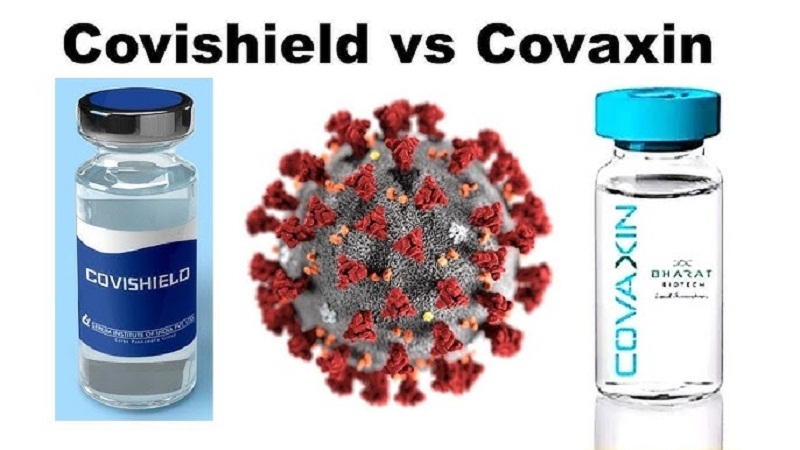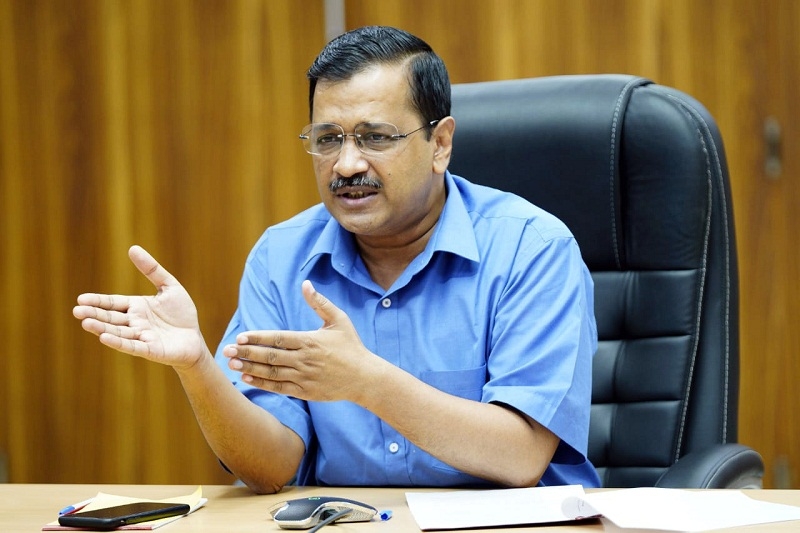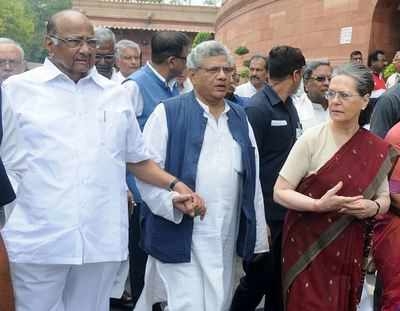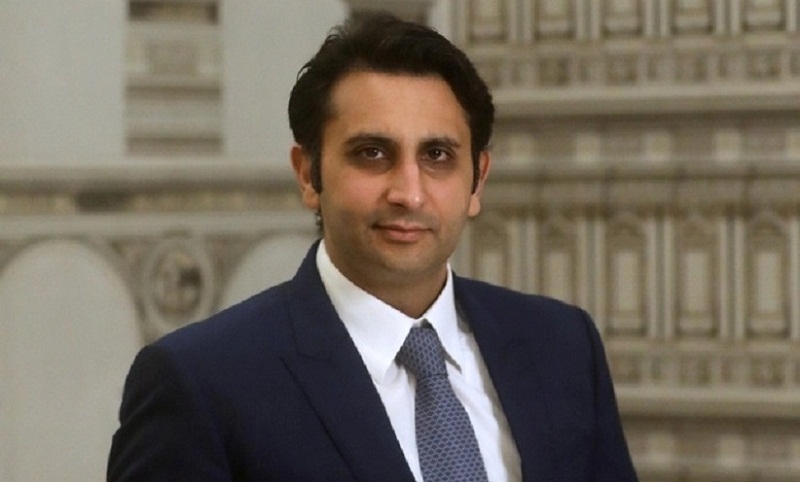Media Hyper Cacophony & Corona Vaccines controversy

No end to hyper cacophony in the visual media channels – English or Language – over the second wave of Covid-19 crisis confronting India particularly the prices and availability. Media channels are presenting vicious blame game politics (Full Blown-All out-No Holds Barred War) mostly giving twist to negative narratives detrimental to morale. Instead of forging unity to face and overcome the most daunting challenge, every effort is being made to divide the society to suit to political parties interests.
All anchors, editors and so called expert panelists endlessly criticize the Modi-led NDA government to include: export of 6.6 crore Covishield vaccines to over 95 countries instead of retaining them for internal use with disregard to shelf life expiry of items produced by October 2020; pricing; non transfer to technology to other vaccine makers; policies regarding vaccination to Healthcare and frontline line workers, above 65, 45 years and 18 years and now for all students. Modi-bashing and India denigration is ad infinitum viewed as international conspiracy to crush modern India!
Delhi Chief Minister Arvind Kejriwal (AK) is leading the pack of opposition political party leaders group. No other Chief Minister out of 31 States including stalwarts like Mamata Banerjee, Uddhav Thackeray, M K Stalin etc., have such an imposing presence, 24x365, in the visual media.
And, AK’s Covid-19 political gamesmanship is incredibly bombastic. Not a single day passes without AK indulging in barbs at Modi. Is it an attempt to place himself as the real challenger by 2024? AK may fool the people of Delhi, the City of ‘Dalals’, for some time; but not all the times. Not at least the people of India. AK’s gimmickry or flip-flops includes declaring Hotel Ashoka as 100-bed Covid Hospital for judges and his media ad blitz and offer of free vaccines to all journalists on priority.

On 30th April 2021, on face book, the duration to vaccinate all above 18 years age based on current availability of 20 lakh vaccines per day or 6 crore per month was identified and recorded to include: for 39% of above 45 years (56 crore or 112 doses) as 18+ months; and for 75% of above 18+ (105 crore or 210 doses) as 35 months or nearly 3-years. Even a 5th class kid would have given the above projections. Surely, the planners in the government knew about the Himalayan Challenges and considered various alternatives to fast pace ramping of production and clearance of other vaccines.
An IIT alumnus shared the data of criticism following the country’s decision to adopt the Covishield and Covaxin: intelligentsia, non-BJP political parties, NGOs, etc., on insufficient data on efficacy, and we will not get it done.
The media lambasted the government for approval to Covaxin. The list of news/articles published in the media against the vaccine includes: Indian Express-182; Loksatta-172; Navbharat Times-236; Hindustan Times -123; Times of India -28; The Wire -78; The Print -59; Scroll-122; Newslundary-54; Alt News -78; and The Hindu -128.
 Also, the number of leaders of the opposition political parties who spoke against the vaccine is: Congress Party-58; Samajwadi Party-17; Shiv Sena-27; DMK-13; CPM-12; and TMC-12. 265 major NGOs had spoken against the vaccine. 172 retired IAS, IPS, judges and other officials also spoke against the vaccine. Cartoonists produced 342 cartoons.
Also, the number of leaders of the opposition political parties who spoke against the vaccine is: Congress Party-58; Samajwadi Party-17; Shiv Sena-27; DMK-13; CPM-12; and TMC-12. 265 major NGOs had spoken against the vaccine. 172 retired IAS, IPS, judges and other officials also spoke against the vaccine. Cartoonists produced 342 cartoons.
After all the confusion compounded in public domain, a large section of the people believed that vaccines are not safe. George Soros, the sponsor of many crises like Shaheen Bagh protests over CAA etc., must be gleefully watching India burning.
And when the vaccination started from 15 January, only a few people got vaccinated. At some vaccination centers, hardly 2-3 vaccinations were reported. If you look at the long lines for vaccines in Mumbai today, hundreds of people above 60 years are also seen. If someone ask long lines of over 60 years persons as to why they did not got vaccinated in March, they blame the fear mongering created by the media, politicians etc. The result was very high wastage rate of vaccines.
Let me highlight global basic facts of Covid Vaccines state. As per data available in public domain (April 2021), 14 vaccines are authorized by at least one national regulatory authority for public use to include: 1) two RNA vaccines (Pfizer–BioNTech and Moderna); 2) five conventional inactivated vaccines (BBIBP-CorV, CoronaVac, Covaxin, WIBP-CorV and CoviVac); 3) five viral vector vaccines (Sputnik Light, Sputnik V, Oxford–AstraZeneca, Convidecia, and Johnson & Johnson); and 4) two protein subunit vaccines (EpiVacCorona and RBD-Dimer).
Covishield (Oxford–AstraZeneca) and Covaxin are the two vaccines currently produced in India – around 20 lakh doses per day or nearly 6 crore in a month or 72 crore in a year or 35 months for vaccinating above 18+ people. Other seven vaccines – made in India - in the pipeline include: (1) Sputnik V (Gamaleya National Centre, Russia) by Dr Reddy's lab, Hyderabad, by end May 2021; (2) DRDO Anti-Covid Drug (2DG Medicine) developed by Institute of Nuclear Medicine and Allied Science in collaboration with Dr. Reddy Labs, Hyderabad and approved on 9th May 2021; (3) ZyCoV-D by Zydus Cadila close to getting approved by first week June, 2021; (4) NVX-CoV2373 (Novavax) by SII, Pune, supply likely by September; (5) Biological E Ltd (MIT, USA), Hyderabad, under active consideration; (6) HGCO 19, mRNA based vaccine Genova, Pune; and (7) HDT, Thomas Jefferson University, (USA) by Bharat Biotech, Hyderabad.
Approval of Covishield was given on 1 January 2021. The fast tracking of approval for Bharat Biotech drew criticism from scientists and industry experts as the company was still conducting a phase III trial: The All India Drug Action Network; Virologists like Shahid Jameel, director of the Trivedi School of Biosciences at Ashoka University; Nitin Pai, Director of Takshashila Institution; Giridhar Babu, Public Health Foundation of India; and Srinath Reddy, President of the Public Health Foundation of India etc.
Bitter politics broke out. Several Congress leaders, including Anand Sharma, Shashi Tharoor and Jairam Ramesh, raised serious concerns over the grant of approval to Bharat Biotech’s vaccine. Anand Sharma asked the government to explain why mandatory protocols and verification of data has been dispensed with. Akhilesh Yadav urged caution; Mayawati welcomed vaccines. By April, they made volte face and demanded “Free Vaccines for All” including the billionaire Sonia Gandhi and others like her instead of “Free Vaccines for BPL Families after Healthcare and frontline Workers.
The first phase of the rollout involved healthcare and frontline workers including police, paramilitary forces, sanitation workers, and disaster management volunteers. By 1st March, only 1.4 crore healthcare and frontline workers had been vaccinated, falling short of the original goal of 3 crore. Phase 2 of the vaccine rollout covered all residents over the age of 60, residents between the ages of 45 and 60 with one or more qualifying co morbidities, and any health care or frontline worker that did not receive a dose during Phase 1. From 1 April, eligibility was extended to all residents over the age of 45.
Next, the issue of varying price of each dose is yet another high-octane political diatribe in the media including different pricing for the State Governments and Private Hospitals. Facing criticism over vaccine policy, the government of India clarified that the procurement price for both COVID-19 vaccines remains Rs. 150 per dose, and GOI procured doses will continue to be provided TOTALLY FREE to states and those provided to private hospitals would be available at the subsidized rate of Rs. 250 per dose.
Most important is the issue of prices per dose of various vaccines in Indian Rupees include: Covaxin Rs.150 to Central Government and Rs.400 to State Governments - available in India; Covishield Rs 150 (first 100 million doses) available in India; DRDO (2DG Medicine) Rs.500 to 600 likely; Sputnik V one dose vaccine Rs.740 (Likely); Moderna Rs. 2348-2715 (to be stored at -20 degree C unlikely yet), Pfizer-BioNTech Rs.1431 (Unlikely yet), CoronaVac Rs. 4005/- NA; and Sinovac Rs.4005 (Not authorized).
Ipso facto, the EU financially supported the development of the Oxford-AstraZeneca vaccine, BioNTech and Pfizer vaccine. AstraZeneca has reserved the right to revise prices once the pandemic phase is over and take profits from later vaccine sales. The price of Oxford-AstraZeneca for the EU is cheaper - $2 dollars or Rs.150 per dose. The UK and the US are expected to pay about $3 and $4 (Rs.210 to Rs.280) respectively per dose.
Next, the EU also financially supported the development of the BioNTech and Pfizer vaccine and has obtained a lower price per dose ($14.70 - Rs.1102) than the US ($19.50 –Rs.1462). The Johnson & Johnson vaccine is also much cheaper, costing the EU $8.50 (Rs.637).
Russian Sputnik V is a single dose vaccine with 95% efficiency priced at $10 per dose (Rs.750). China's Sinovac price is Rs.4000 per dose. Also, the US government subsidized the Moderna vaccine’s development, and it will cost the US about $15 (Rs.1125) a dose, while the EU is paying $18 (1350). It requires -90 degrees cold storage facilities.
As per experts, the priciest vaccines repay their cost many times over in economic growth from a reopening economy. Affluent governments could well be tempted to bid higher if supplies tighten.
In reality, the blame for shortfall of vaccine production in India squarely goes to the SII, Pune - the world’s largest vaccine manufacturing firm. Last year, the SII struck a deal with AstraZeneca to manufacture and stockpile its Covid-19 vaccine. These doses could be sold in India and to other countries under contracts with AstraZeneca. For instance, in October 2020, SII had produced about 5 crore doses for the purposes of stockpiling. The firm was confident that it could scale up to produce a total of 10 crore doses by January, revised to March 2021 during Modi’s visit and to end May 2021 now. The current SII’s production capacity has remained at around 7 crore doses a month.

Furthermore, Poonawala has also said that AstraZeneca has sent SII a legal notice for not meeting its contractual obligations. This, he says, has been largely due to the fact India stopped the exports of vaccines because of domestic shortages. Poonawala, who hopes to restart exports by July, said that right now, he wanted to “prioritize the needs of the nation first”. A week later, the Indian government initiated an advance of Rs 1,700 crore for the fresh purchase of 11 crore doses to ease some of this financial stress.
On April 21, Poonawala stated SII would be selling Covishield to India’s state governments at Rs 400 per dose, and private hospitals at Rs 600. A week after announcing the initial pricing, he said that SII would sell to state governments at a reduced price of Rs 300 a dose. Poonawala claimed later that he had negotiated a price of Rs 150 per dose with the Central Government only for the initial contracts.
Meanwhile, Poonawala left India and moved to the United Kingdom. In an interview with the Financial Times newspaper, Poonawala said that he did not think he would have to ramp up production so quickly because “there were no orders” from the Indian government. “I am just the manufacturer…I do not decide these politics,” he said. He also issued a statement on May 3 saying that because vaccine making is a specialized process, “it is therefore not possible to ramp up production overnight”.
Now, Poonawala has decided to invest £240 million (Rs 2,400 crore) in the UK project that would include a sales office, “clinical trials, research and development and possibly manufacturing of vaccines”, debunking his own narrative of financial distress.
Amid the shortage of vaccines following the unprecedented surge in Covid-19 cases, no wonder several states seized the opportunity to float global tenders for the jabs in a bid to increase the inoculation drive: Maharashtra, Odisha, Uttar Pradesh, Kerala, Gujarat, Karnataka, Rajasthan, Andhra Pradesh, Telangana and Chhattisgarh. Of late, all opposition parties without exception are blaming Modi not to foresee second wave outbreak and requirements.
Considering the above prices, the States floating Global tenders is the most foolish step. The availability of approved products, prices, their effectiveness (single or double or double with additional booster dose), cold storage requirements and their shelf life etc., have not been taken into consideration. As per DRDO Chairman, 10,000 sachets of their product – 2DG Medicine - will be released any day. Three local vaccines are entering production and four others also getting approval soon.
Is floating global tenders for vaccines aimed at gaining commissions and the forerunner of Covid-19 Vaccines Scam? Most disturbing is some State governments are not lifting the vaccines stock allotted to them and complaining about shortfalls in their vaccine programs. Viewed in the context of likely availability of indigenously approved vaccines, it does not make any sense by whatsoever stretch of imagination to float global tenders.
Next, the issue of export of vaccines to other countries is drawing the ire of opposition parties – 6.63 crore to 95 countries. Majority of exports were done during January to March 2021 when there was tremendous skepticism over the success rate of Vaccines produced by India and its shelf life was almost at its end. What is hardly ever stated is the goodwill earned by India by such a gesture.
In sum, the second wave of Covid-19 is an extraordinary and unique threat that requires national unity to overcome. Media hyper cacophony ends in obfuscation of real issues particularly based on negative projections. When all opposition parties are hell bent upon pursuing a negative narrative with partisan media to drive a wedge in Indian society to herald the downfall of the present ruling party, it will only result in ushering political instability with our adversaries or foreign hands gleefully watching, welcoming and even aiding to the downfall and disintegration of modern India.
